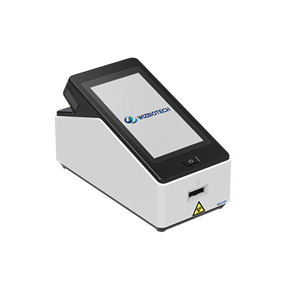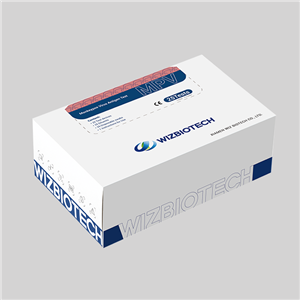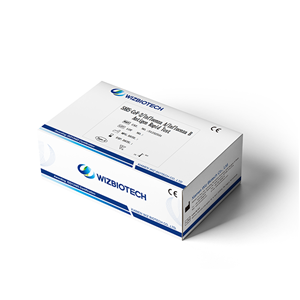Let’s know more about Thyroiditis diagnosis
May 25 is World Thyroid Day, designed to raise awareness about the thyroid gland and its diseases. Thyroid diseases are quite common, there are about 20 million affected people just in the USA. However, there are some rare thyroid diseases that are not well-known to the public, and it is hard to diagnose and treat them. But if one leaves it untreated, it might lead to serious health problems. Here, we would like to share some information related to the diagnosis of thyroiditis.
Thyroiditis is an autoimmune disease that causes thyroid inflammation. The symptoms of it include fatigue, weight gain, hair loss, and depression. There are several types of thyroiditis, including Hashimoto's thyroiditis, subacute thyroiditis, and postpartum thyroiditis. The diagnosis of thyroiditis usually includes a physical examination, blood examination, and imaging studies.
During the physical examination, the doctor usually checks for signs of thyroid enlargement or tenderness. They may also look for signs of hyperthyroidism or hypothyroidism, such as rapid heart rate, weight changes, or changes in mood or energy levels.
Blood tests are usually used to measure levels of thyroid hormones, as well as antibodies that may indicate an autoimmune condition. In Hashimoto's thyroiditis, for example, the body produces antibodies that attack the thyroid gland, leading to inflammation and damage. Blood tests can also help rule out other conditions, such as thyroid cancer or Graves' disease.
Imaging studies, such as ultrasound or a thyroid scan, could be used to visualize the thyroid gland and look for signs of inflammation or damage. In some cases, a biopsy may be needed for confirming the diagnosis of thyroiditis and ruling out cancer possibility.
Treatment for thyroiditis depends on the underlying causes and severity of symptoms. In some cases, medications may be prescribed to help regulate thyroid hormone levels and reduce inflammation. In more severe cases, surgical removal of either part or all of the thyroid gland may be needed.
In all, early diagnosis and treatment of thyroiditis can help prevent complications and improve outcomes. If one has likely symptoms of thyroiditis, such as fatigue, weight changes, or changes in mood or energy, it is important to talk to your doctor and undergo appropriate testing and evaluation.
WIZBIOTECH has always been adhering to the mission of “focus on diagnostic technology to improve the quality of life”. In the field of thyroid disease diagnosis, WIZ has launched a thyroid function test series, including TSH, T4, T3, FT4, FT3, Anti TPO, and TG-Ab, which meet the diagnosis and treatment needs for common and rare thyroid diseases and provide a diagnostic basis for doctors.
Please feel free to contact our sales team for further information.




